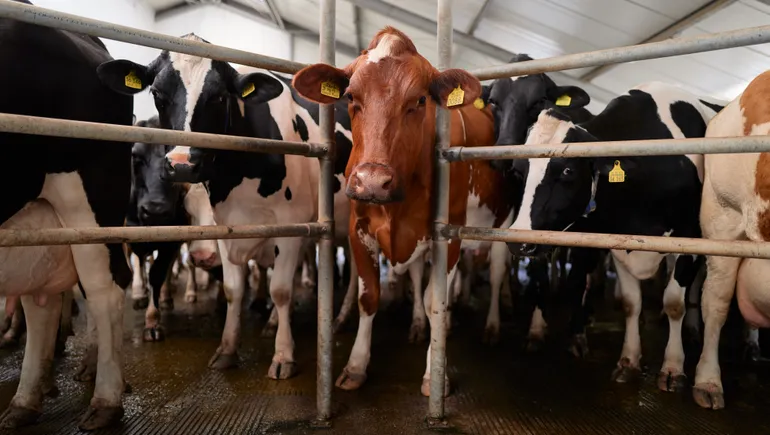Bird flu remnants found in pasteurized milk: FDA

The U.S. Food and Drug Administration on Tuesday said it has identified viral fragments of highly pathogenic avian influenza in tested samples of pasteurized milk, but the discovery likely does not pose a threat to consumers.
There have been 33 detections of bird flu in dairy cattle across eight states since the reports emerged in late March, according to the U.S. Department of Agriculture. More than 20 states have enacted temporary cattle travel restrictions to curb the spread.
Previous reports from the USDA found the presence of the virus in raw milk from infected cattle. The FDA stressed that the pasteurization process has been shown to inactivate bacteria and viruses, and that there are no current concerns about the safety of the nation’s milk supply.
The agency tested milk samples using quantitative Polymerase chain reaction (qPCR) testing, a screening tool used to determine the presence or absence of an organism’s genetic material in a sample.
The results of the genetic tests “do not represent actual virus that may be a risk to consumers,” the FDA said, and more research is required to determine if bird flu is “still present and if it remains infectious” in the collected products.
“To date, we have seen nothing that would change our assessment that the commercial milk supply is safe,” the agency said.
No studies on the effects of pasteurization on highly pathogenic avian influenza in bovine milk have been completed, but the FDA is working on studies that draw from previous scientific literature and current testing of milk samples that are lab-generated and from various levels of the dairy system, including from farmers and retailers.
“Based on available information, pasteurization is likely to inactivate the virus, however the process is not expected to remove the presence of viral particles,” the agency said in its update.
The FDA plans to publish results from the studies in the coming days or weeks. The agency did not provide details on how many samples it tested or what proportion of pasteurized milk contained viral fragments.
“We are committed to collaborating with the broad community to come to sound scientific conclusions regarding this situation — which it’s important to understand takes time,” the FDA said in its update.
Source: fooddive.com

